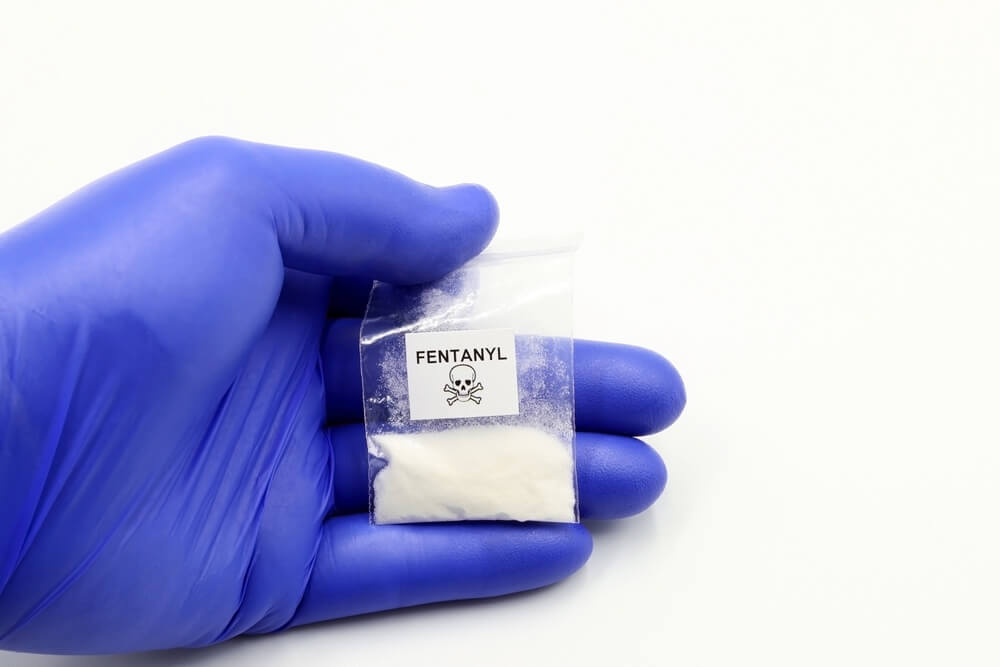The nation is in the midst of a fentanyl crisis driven by Mexican cartels. While we have the capability to crush this narcotic and those behind it, little progress has been made.
The problem is massive. There were over 112,000 fentanyl overdose deaths in 2023, which amounts to 2,153 Americans on average per week, and the narcotic is the leading cause of death in the 18 – 45 year old age group. Explaining the scope of the fentanyl crisis, the Drug Enforcement Administration (DEA) reports that in 2023 it seized in excess of 77 million fentanyl pills and nearly 12,000 pounds of fentanyl powder. That amounts to more than 386 million deadly doses of fentanyl, “enough to kill every American.”
Clearly, America’s current anti-narcotic efforts are failing. The actions of the next administration will determine whether the nation will beat this scourge or surrender. The 2024 presidential contenders must define their plans to handle this crisis and enhance our homeland security.
Regardless of who wins the White House, these are the five crucial issues that the presumptive nominees must address to demonstrate how the country, under their administration, would combat the ongoing threat posed by fentanyl.
Foreign policy changes
Diplomatic efforts to disable the cartel’s fentanyl supply chain have to date failed. In 2018 and 2019, negotiations managed to persuade the Chinese authorities to pass laws prohibiting the export of fentanyl and some precursor chemicals. Unfortunately, little effort was made on enforcement.
A summit between China’s President Xi Jinping and U.S. President Joe Biden last year saw China agree to additional restrictions. Between that get-together and a working group meeting between United States and Chinese officials on Jan. 30, 2024, precursor chemicals were still being shipped to Mexico resulting in the ongoing flow of fentanyl into the U.S.
The presidential nominees must address the importance of concluding and enforcing effective bilateral agreements with China and Mexico, as a starting point – not just China — in which all parties work together to destroy the cartels’ and their suppliers’ capabilities and apparent legal immunity. Both China and Mexico must be held accountable.
Strategies to deal with cartels
Since most of the fentanyl killing Americans is smuggled through the Mexican border, with the precursors primarily coming from China, these sources must be targeted economically and legally, making it more complicated and more costly for them to get away with turning a blind eye.
To curb the trade in narcotics, the presidential contestants should discuss why more technology-based interventions and inspections are needed to increase the speed and accuracy of narcotic detection. Inhibiting the cartels’ ability to move precursor chemicals from China to clandestine drug laboratories in Mexico, and degrading their smuggling routes into the U.S., is a first step to impede the cartels’ ability to operate.
Southern border strategies
The presidential contenders must aggressively address the southern border issue. A robust border is necessary to save lives. Stopping the influx of cartel mules among the many immigrants crossing into the U.S. will require finishing physical border barriers where applicable and ensuring that every person crossing the border illegally is stopped and appropriately screened and processed. It’s important to note that the migrants who cross the border and surrender themselves to the U.S. Customs and Border Protection are not suspected of “muling cartel drugs.”
Additionally, the nominees must explain how upgrading and hardening border checkpoints and secondary checkpoints to better scrutinize motor vehicles and their passengers, trucks and cargo is non-negotiable. More border guards with enhanced training will create longer queues but will also capture and deter smugglers.
Declare the cartels narco-terrorists
The aspirant presidents must also make the tough decision to declare the cartels as narco-terrorists because their activities directly affect the national security of the country. A narco-terrorism declaration would authorize a “whole-of-government approach” that would significantly mitigate cartel drug production and operational capabilities in Mexico.
Additionally, cartel proxies and their financers could be charged with aiding and abetting terrorists, a federal offense with long jail sentences. This includes distributing fentanyl, even in small amounts, acting as a mule or go-between for the cartels, as well as direct cartel operations.
Ecuador recently responded to extreme cartel violence by declaring 22 gangs as terrorists, which allowed the president to engage the military and focus on defeating the cartels. While the U.S. would not resort to the same tactics as Ecuador to deal with the cartels, adopting a zero-tolerance approach would send a strong message.
Declaring the cartels as narco-terrorists would necessitate having defined rules of engagement that are effectively applied within the parameters of our law.
Uniform domestic anti-narcotic strategy
The critical requirement for any successful policy aimed at stopping the fentanyl crisis is uniformity. Currently, America’s approach is fragmented as some states take a hard line against narcotic crimes, while others have decriminalized the sale of certain narcotics in limited amounts. These progressive policies are extracting a cost as their local economies crumble while crime soars.
The candidates must justify and build enough support to create a uniform federal anti-narcotic strategy and ensure states adhere to it. This will guarantee that police and prosecutors have a uniform approach to those found dealing narcotics. There will be no safe states or cities where cartels can operate with impunity, but they will face the full force of the federal government for fentanyl-related crimes.
At the same time, the front-runners must also remember the victims of fentanyl, recognize its extreme addictiveness and support the creation of harm-reduction programs that assist people in recovering. This program should reach into the education system and teach America’s youth how dangerous fentanyl is and how it is often disguised as something else, such as fake prescription pills. Similarly, parents need to know what signs to look out for and how to talk to their children about the risks.
The candidates have no choice; they must include fentanyl as a critical issue. They might take the Laredo, Texas as an example, where Robert Kennedy of the Drug Enforcement Administration recently said: “The DEA wants to make this real clear: If you, the drug dealers, decide that you want to sell in the city of Laredo and Webb County, we will pursue you federally … We will break all resources out to bring you to justice.”
Every prospective leader wants to leave a positive legacy, and in 2024 this means recognizing and addressing the fentanyl crisis. No matter how successful a presidential administration may be, ignoring this threat could see their legacy forever tarnished by the deadliest narcotic yet to appear on America’s streets.







